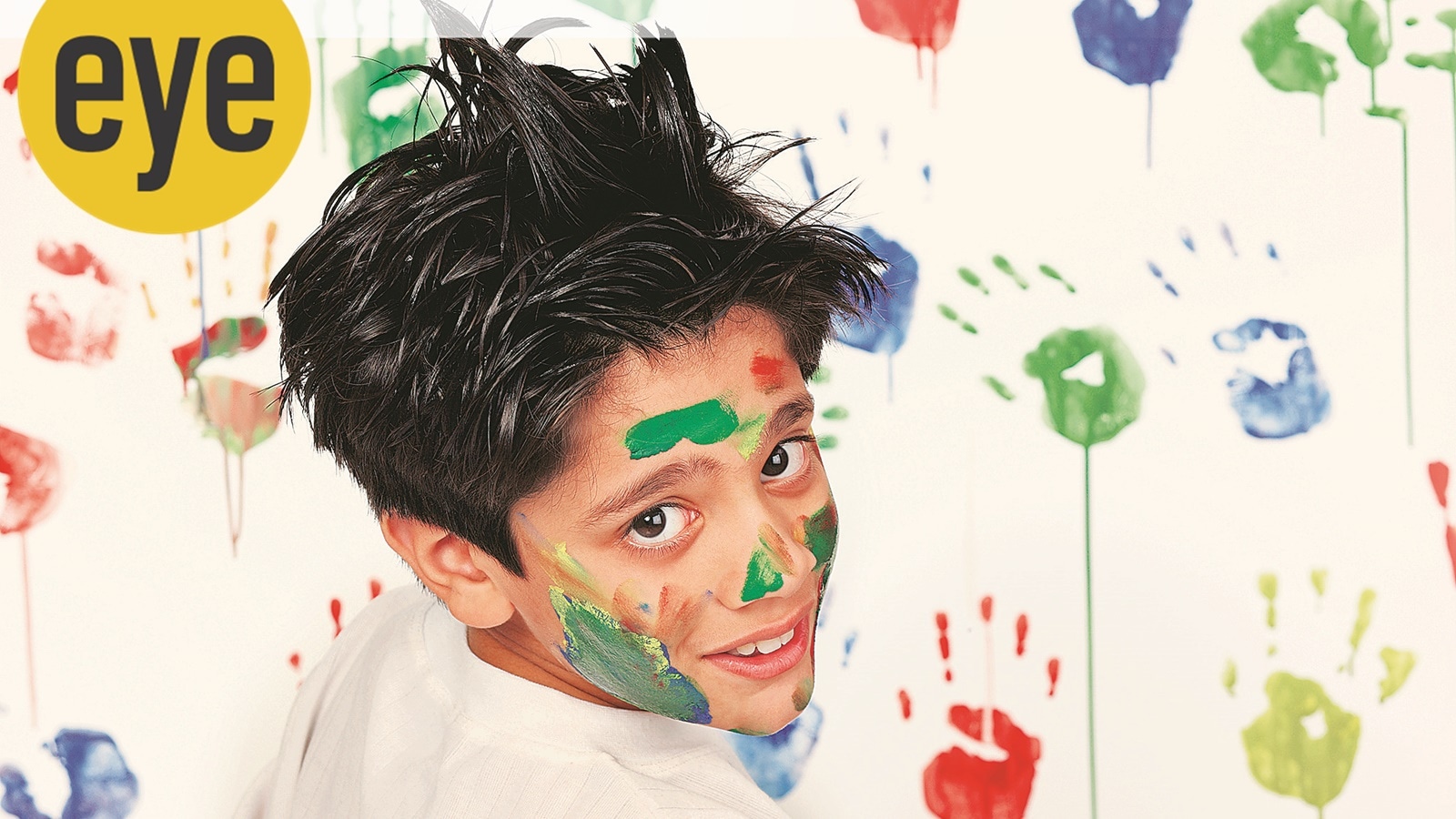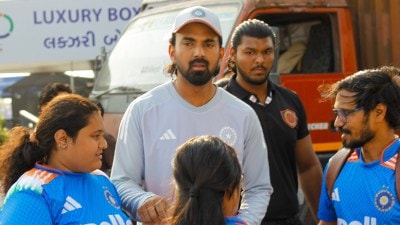There is nothing like a difficult child
It is our obligation to not let them be defined by labels that rob them of their dignity. Or to be complicit in the systemic violence that is carried out in the name of discipline
 Our power over our children’s lives can invisibilise how we have to be accountable for them and to them. (Getty Images)
Our power over our children’s lives can invisibilise how we have to be accountable for them and to them. (Getty Images)He is a very difficult child.” I come across this statement so often in my conversations with teachers, parents and carers. At times, even from children themselves, as if they have heard it so often that they have made it their truth, “I am difficult.”
In my experience as a therapist, I have seen all kinds of “difficult”. Children who scream, hit, bite, lie, steal, bully, fail in their exams, refuse to go to school, smoke, drink, and take risks. The list is endless and so is the pain that it brings to their families. Therefore when I say, “There is nothing like a difficult child,” I do not want to diminish the struggles of the parents and teachers. But I would like to unpack the word “difficult” which is thrown around so easily for children.
Rohan is being told repeatedly that he “does not want to do anything,” that he is “lazy”, “is stubborn and does not listen.” His teachers are saying it, his parents are saying and he has started saying it to himself. He sits across me, eyes trained on the opposite wall, shrugs and adds his own conclusion, “I guess, I am a loser.”
If we were to go back in time to the time Rohan was a toddler, we would have met a little boy who was proudly described as, “enthusiastic and full of curiosity.” So what happened in the past 12 years that changed his story so much? What snuffed the curiosity and the enthusiasm? Maybe it was the struggle to keep up with classes, maybe it was the comparison, maybe it was that nobody picked up the neurodivergence that was coming in the way of his learning. If the child does not fit in the tightly defined grooves of our educational system, we are quick to label the child “difficult” or “unmotivated”, or chastise or even punish them.
I wonder if you had a phase in your life when you “did not want to do anything.” Maybe you are going through it now. Did you one day decide that you were done wanting to do things or did it come slowly to you? Did you reach that point after months, maybe years of trying and then giving up? Was it painful to reach that point? Did you keep silent and not share it with anyone as you were scared of being judged? What if someone brushed off your pain as, “such a difficult person” or “attention seeking”?
There is a notion that if children are “not behaving” then they are doing this on purpose, that they are “difficult”, “defiant” or maybe even “doing drama.” My intention is not to blame but for us to explore these problematic ideas that end up damaging our children and our relationships. We are all part of the problem. I have ended up slipping into this narrative of “this child is difficult” so often as a parent and a therapist.
 We have to work with our children and not against them. (Source: Freepik)
We have to work with our children and not against them. (Source: Freepik)
These are the five principles that have steered me back into a more intentional and expansive position. Every time.
Children do well if they can* I have never met a child who does not want to do well. They want to learn, make friends, play, explore and be appreciated. If a child, like Rohan, is struggling, we have to make a paradigm shift from “doesn’t want to” to “is struggling to.” It is about skill and not will. Maybe there might be a learning difficulty, a mental health struggle, bullying in school or family conflicts at home.
Children’s behaviour always makes sense. What if Rohan found a safe space at home or in school to talk about what he was struggling with? Where he was not judged and his difficulties were dismissed as “making excuses.” We might find that behind the labels of “difficult”, “stubborn” and “lazy” is a child who had really tried hard for years to keep up despite a learning difficulty but was now giving up as his efforts were belittled as “not good enough.” It is not a surprise when he sighs and adds, “What’s the point?”
What we focus on grows. Rohan’s statement, “I guess I am a loser,” speaks of our obsession as a society to push our children to oppressive standards of performance. What if most conversations with Rohan were not just about his “failing” to keep up with the academic race? Where if he could start exploring his love for sports and trekking. Maybe we would get to know more about his spirit of adventure, about his endurance, his ability to be a team player and so much more.
We have to work with our children and not against them. “What about his academics?”, some of you might ask. I am not in any way suggesting that we ignore that. But what if we took a more collaborative position rather than one of, “I am right, you are wrong!” We could take what I call — the “You-Me-We approach.” You — I listen to you from my heart even though I might not agree with you. Me – You listen to me even though you might not agree with me. We — then together we find a tentative understanding (there is no perfect solution for parenting) that works for all of us. Children want to be seen and heard and to know that their parents and teachers appreciate what they are up against.
The way we talk about our children becomes their life stories. From the time children are little, they hear stories being told about themselves. These stories do not just describe their lives but they impact their lives. They shape their identities, what they will think of themselves, and what choices they will make. Do we want Rohans of our world to believe that they are difficult, losers, and failures or do we want them to acknowledge their difficulties but not lose sight of their abilities, what is precious to them, what excites them, what their hopes and dreams are and how they want to be in this world?
Let me clarify that building richer stories is not about gold-plating difficulties. Not at all. That position minimises the pain that children go through. We cannot iron out their struggles with the problematic idea of “let’s be positive.” However, our power over our children’s lives can invisibilise how we have to be accountable for them and to them. It is our obligation to not let them be defined by labels that rob them of their dignity. Or to be complicit in the humiliation, punishment, systemic violence that is carried out in the name of discipline. Maybe next time you hear the words, “difficult child” (or the multiple synonyms), pause, reflect and speak up for our children.
*Acknowledgement: Ross W Greene
- 01
- 02
- 03
- 04
- 05































